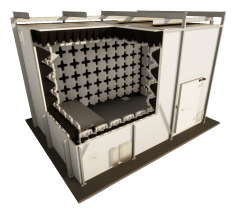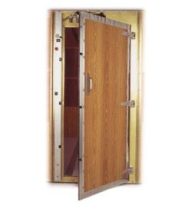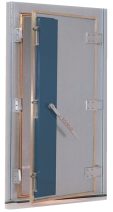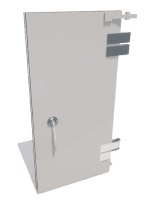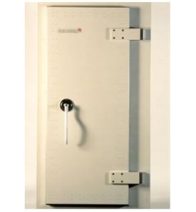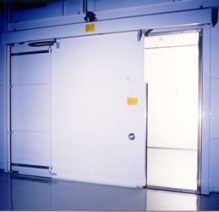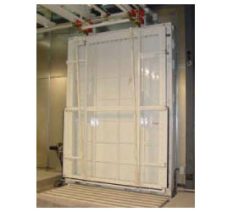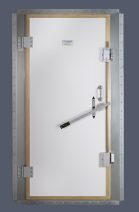Shielding /
RF Doors
RF doors, also known as radio frequency doors, are specialized doors that are designed to provide protection against electromagnetic interference (EMI) and radio frequency interference (RFI). These doors are typically made from materials such as steel, copper, or aluminum and are used in a variety of industries including aerospace, defense, telecommunications, and medical facilities.
RF doors are particularly useful in environments where sensitive electronic equipment is being used or where security is of paramount importance. For example, in the aerospace industry, RF doors are used to protect aircraft from external electromagnetic interference that can disrupt communication systems or damage sensitive avionics equipment. Similarly, in the defense industry, RF doors are used to protect military installations and equipment from electronic jamming or interception.
In addition to providing protection against external interference, RF doors can also help to contain electromagnetic energy within a specific area. This is particularly important in medical facilities where sensitive equipment such as MRI machines can emit strong electromagnetic fields that can interfere with other equipment or even cause harm to patients.
RF doors are typically designed to meet specific industry standards such as MIL-STD-461 for military applications or FCC Part 15 for telecommunications equipment. These standards dictate the level of electromagnetic protection that the doors must provide and ensure that they are suitable for use in specific environments.
RF doors, also known as radio frequency doors, are specialized doors that are designed to provide protection against electromagnetic interference (EMI) and radio frequency interference (RFI). These doors are typically…
...made from materials such as steel, copper, or aluminum and are used in a variety of industries including aerospace, defense, telecommunications, and medical facilities.
RF doors are particularly useful in environments where sensitive electronic equipment is being used or where security is of paramount importance. For example, in the aerospace industry, RF doors are used to protect aircraft from external electromagnetic interference that can disrupt communication systems or damage sensitive avionics equipment. Similarly, in the defense industry, RF doors are used to protect military installations and equipment from electronic jamming or interception.
In addition to providing protection against external interference, RF doors can also help to contain electromagnetic energy within a specific area. This is particularly important in medical facilities where sensitive equipment such as MRI machines can emit strong electromagnetic fields that can interfere with other equipment or even cause harm to patients.
RF doors are typically designed to meet specific industry standards such as MIL-STD-461 for military applications or FCC Part 15 for telecommunications equipment. These standards dictate the level of electromagnetic protection that the doors must provide and ensure that they are suitable for use in specific environments.
-
At MDL Technologies, we have a thorough understanding of the crucial role that an anechoic chamber plays in obtaining precise and dependable test...FIND OUT MORE
-
The ASDS is a reliable, economical RF door solution. It is designed to be lightweight to allow for easy operation. A new, ergonomic door handle...FIND OUT MORE
-
ETS-Lindgren Auto-Latching Door System for EMI/RFI Shielded Rooms maintain the highest level of shielding effectiveness in EMI/RFI enclosures whilst...FIND OUT MORE
-
A New Standard in Knife Edge Door Technology for EMI/RFI Shielded Enclosures. To improve on the quality and performance of the traditional knife edge...FIND OUT MORE
-
The high performance typical to EUROSHIELD doors is shown by the graph below, which represents the results of measurements made in accordance with...FIND OUT MORE
-
The least favourable point of the door was chosen for the attenuation test. ETS-Lindgren’s Euroshield brand door unit consists of frame and...FIND OUT MORE
-
The RFSD-100 sliding doors were designed to meet the highest shielding requirements. The patented labyrinth sealing construction ensures light and...FIND OUT MORE
-
The special large EUROSHIELD SRFSD-100 sliding doors are designed for applications in the reverb chambers and partial discharge rooms and according...FIND OUT MORE
-
The ETS-Lindgren Pneumatic Hinged Door (PHD) is a highly reliable RF sealing concept in shielded hinged leaf doors, and offers the most...FIND OUT MORE
-
The Single Knife Edge™ (SKE) Door from ETS-Lindgren offers superior knife edge door reliability, performance and longevity. The SKE Door...FIND OUT MORE

